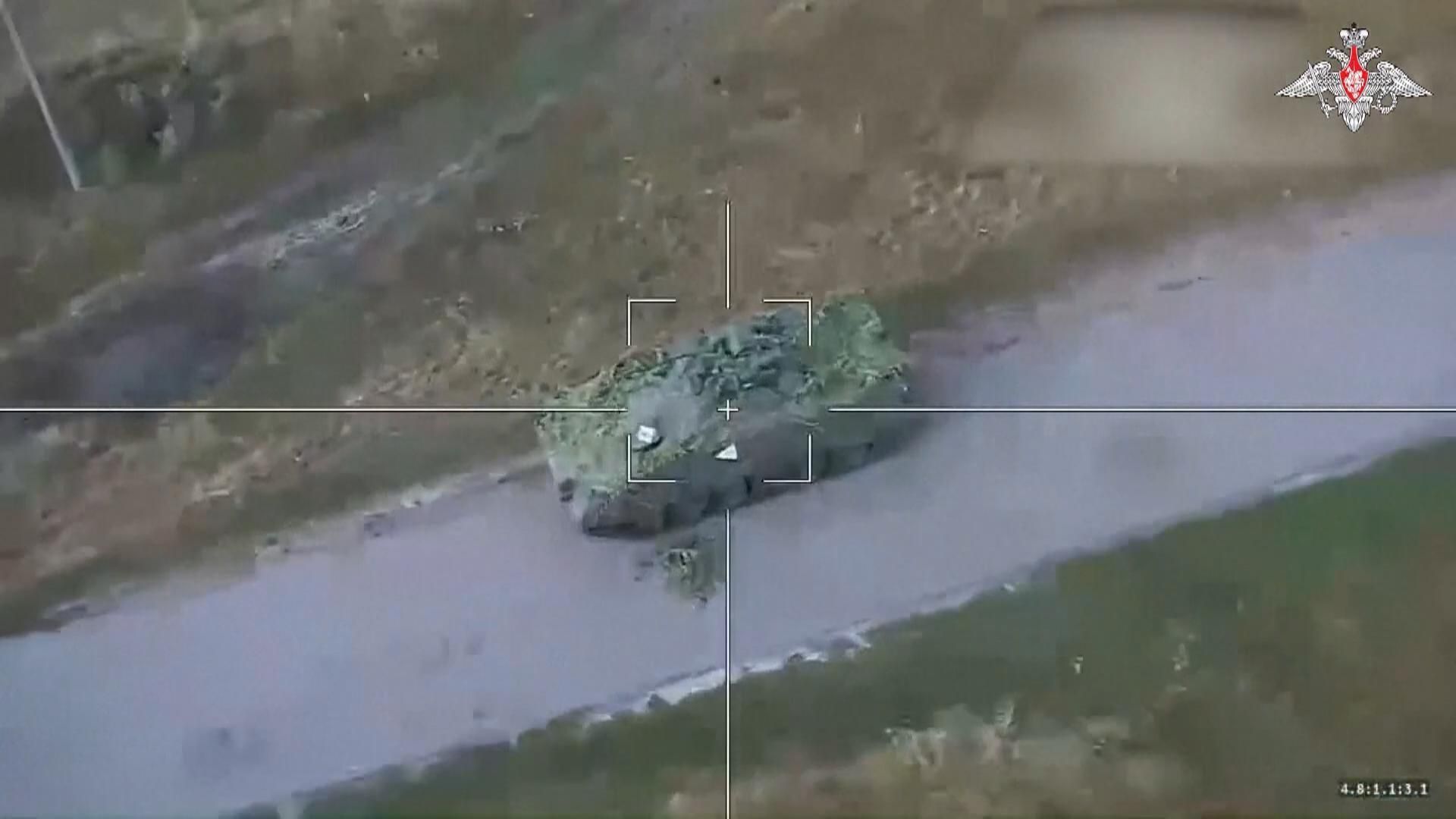Around 1,000 Ukrainian troops have penetrated several miles into Russia’s Kursk region in an ongoing incursion that appears to have caught the Russian military by surprise.
Much of the picture remains unclear as Ukraine seeks to maintain operational security, but experts say the offensive appears to have broken through at least two sets of Russian defensive lines and a stronghold in the Kursk region.
Messaging from the Kremlin has been contradictory, seeking on the one hand to present the developments as significant while at the same time insisting that the situation is under control.
Where is the Ukrainian incursion and how far have the troops got into Russian territory?
Russian forces have been battling Ukrainian troops for three days now after they smashed through the Russian border in the Kursk region.
Estimates vary but it’s thought around 1,000 Ukrainian troops went through the border in the early hours of Tuesday with tanks and armoured vehicles, supported by drones and artillery.
According to the Institute for the Study of War (ISW) thinktank, geolocated footage shows confirmed advances of up to 10km (6.2miles) into Russian territory.
The ISW referenced a Russian source who claimed Ukrainian forces have seized 45 square kilometres of land and other Russian sources that reported Ukrainian forces have captured 11 total settlements.
However, while it appears possible to confirm some elements, much of the situation remains unclear.
Has something like this happened before?
In the two-plus years of the war since February 2022 there have been other instances of limited incursions into Russian territory.
However, these were generally made up of proxy forces – disaffected Russians who were anti-Kremlin – rather than Ukrainian troops themselves.
In May last year, a group known as the Russian Volunteer Corps claimed to be behind an armed raid on the Belgorod area of Russia.
This time round it appears that enlisted Ukrainian troops are involved in an organised and planned raid into Russia.
What have Russia and Ukraine said?
The Kremlin and other Russian officials have been contradictory in their response to the unfolding situation – calling it a “large-scale provocation” while also insisting that the situation is “under control”.
The Russian Ministry of Defence edited a post on 6 August to remove claims that the Ukrainian forces were just a sabotage and reconnaissance group and that they later retreated, likely to avoid backlash from making demonstrably false claims about the scale and tactics of the ongoing Ukrainian penetration, the ISW reported.
On Thursday, the Russian MoD claimed its forces had prevented a Ukrainian advance in the Kursk region.
By contrast, Ukrainian officials and commentators have largely been silent on the ongoing incursion, likely to maintain operational security.
Ukrainian President Volodymyr Zelenskyy, in his nightly video address on Wednesday, made no reference to the attack, while exhorting Kyiv’s soldiers to press on and weaken Russian forces.
However, Presidential adviser Mykhailo Podolyak referenced the situation in a post on X on Thursday: “The root cause of any escalation, shelling, military actions, forced evacuations, and destruction of normal life forms, including within (Russia’s) own territories like Kursk and Belgorod regions, is solely Russia’s unequivocal aggression.”
Keep up with all the latest news from the UK and around the world by following Sky News
How significant is the Ukrainian operation in Kursk?
“As ever, a developing situation, so we should be wary of grand predictions,” Matthew Savill, military sciences director at the Royal United Services Institute (RUSI) thinktank, told Sky News.
The penetration seems to be 10km to 20km and may involve several thousand troops, he said, but added that the situation is very confusing and caution is required.
“It’s unlikely that the plan is to seriously take Kursk itself, or to try and hold vast swathes of Russian territory,” he said.
“The Ukrainians don’t have much in the way of reserves, whereas the Russians do and sustaining a medium-sized force into Russia right now would be tough for the Ukrainians.”
Read more:
Ukraine begins deploying F-16 fighter jets
Ukraine ‘sinks Russian submarine’
Be the first to get Breaking News
Install the Sky News app for free
Mr Savill speculated some possible motives for the incursion, including:
• to strike a blow against Russian prestige and morale
• to send a signal to international backers that Ukraine is still in the fight and can manoeuvre
• to try and capture more Russian prisoners of war, for future prisoner exchanges
• it could have been an opportunity that opened up to strike against a vulnerable point and is linked to other undeclared operations
• to threaten rear lines and forces in Russia that could lead to the withdrawal of the Russian forces that tried to create the “buffer zone” around Kharkiv
He added: “It’s a risky operation if it is more than a ‘raid’ to disorientate Russian defenders, but the Ukrainians have shown themselves resourceful before, and it’s hard to second-guess them from a thousand miles away while this is only a few days old.”





